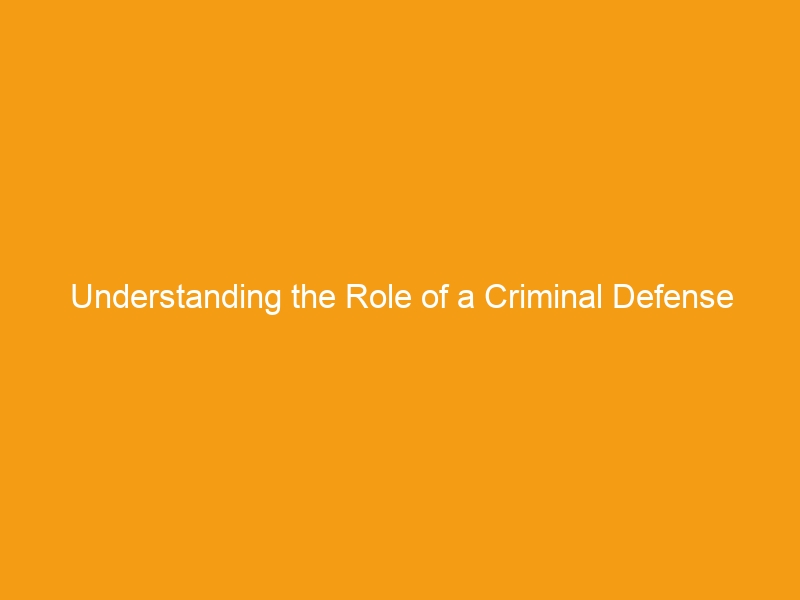A criminal defense attorney helps protect your rights throughout the legal process. They help with various tasks to make your case go more smoothly, such as managing your expectations and ensuring all paperwork is completed accurately.
They also investigate charges and analyze evidence. This can include looking for contradictions or discrepancies between witness statements and physical evidence.
Defending You in Court
You need a criminal defense attorney if you face severe consequences like prison time and hefty fines due to a crime conviction. They will assess your case from a legal perspective and investigate the evidence to find any loopholes that could benefit your case. They will also interview witnesses, file motions with the court, and negotiate with prosecutors to reduce or eliminate your criminal charges.
A competent criminal defense lawyer will be well-versed in the law, especially the Fifth Amendment’s guarantee of the right to stay silent during questioning by authorities and the Sixth Amendment’s guarantee of the right to counsel. This is vital because it prevents you from unwittingly incriminating yourself by saying something that can later be used against you.
They will also keep track of all the case-related paperwork and ensure documents are submitted on time. This is important because mishandled paperwork can severely compromise your case.
Negotiating Plea Deals
A defense attorney must be honest with clients and transparent about what they can achieve through the legal process. This includes discussing any plea offers that may be available.
Prosecutors typically offer several standardized plea deals for certain types of offenses. These are designed to save the courts time and money while closing cases quickly.
Criminal attorneys fight to ensure that their innocent clients don’t go to jail for crimes they didn’t commit and that their guilty clients receive penalties commensurate with the crime rather than excessively harsh sentences that may be dictated by passion or discrimination. Visit this law firm to have a lawyer who will help their clients achieve whatever quality of life they can post-trial.
Criminal defense attorneys will seek to negotiate a fair plea offer if they thoroughly understand your case and the prosecution’s stance. This can be a charge agreement, which involves pleading guilty to a lesser offense, or a sentence agreement, which involves agreeing on a reduced prison term.
Analyzing Evidence
Criminal defense attorneys’ leading roles involve reviewing and analyzing evidence. They do this during the discovery process, meaning the State must provide them with the materials it intends to use in court against you. This includes witness testimonies. Your attorney will independently examine this evidence, bringing in experts to help them spot weaknesses in the State’s case.
They also protect their client’s rights throughout the entire legal process. This includes ensuring law enforcement officials respect and abide by the Fourth Amendment against unlawful searches and seizures. The Fifth Amendment protects people’s right not to incriminate themselves during interrogations. They also ensure that the judge and jury know of constitutional violations during the trial proceedings. This is especially important when a defendant is facing a substantial sentence.
Keeping You Updated
If you’ve been arrested for a criminal charge, whether it’s minor or significant, it’s essential to seek legal help as soon as possible. A lawyer can aid you in understanding the charges and determine a legal strategy to defend your innocence. They also work to ensure that law enforcement officials and prosecutors follow the rules when obtaining evidence and building their case against you. If they didn’t, the attorney can request that the court deem the evidence inadmissible at trial.
Contrary to what you might see on television, most criminal defense attorneys spend most of their time preparing for trial behind the scenes. This can include conducting interviews with witnesses, researching the case, and drafting and arguing motions on your behalf. They are also responsible for communicating with you, the prosecution, and judges or juries when necessary. To avoid misconceptions, they must be able to communicate clearly and simply with all parties involved. Moreover, they must be honest with you about your options and the realities of your case.

